
You are viewing the Institution version of this CEO Update. Institutionally Related Foundation and System versions are also available.
This month, I want to share two things with you.
- I’m excited to recognize the recipients of the 2023 AGB John W. Nason Award for Board Leadership.
- This year, I encourage you to reflect on how to maximize your capacity to gather stakeholder feedback while protecting your board’s autonomy.
We are proud to announce the recipients of the 2023 AGB John W. Nason Award for Board Leadership.
Why it matters: The Nason Award is presented, in collaboration with AGB Mission Partner TIAA, to select higher education governing boards that demonstrate exceptional leadership and initiative, distinct contributions to governance, unusual courage facing adversity, and significant achievement.
- This year, we included special criteria for applicants to describe how their board leadership resulted in the advancement of the educational mission and the success of all students in just, equitable, and inclusive ways.
- We hope that recognizing and showcasing these stories will encourage boards across the world to emulate and iterate these boards’ achievements, strengthening higher education’s future.
Who they are: This year, five of AGB’s more than 1,300 member boards were selected by a distinguished panel of higher education experts. These governing boards lead two- and four-year institutions and institutionally related foundations.
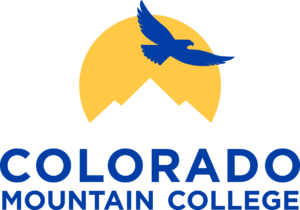
Colorado Mountain College Board of Trustees
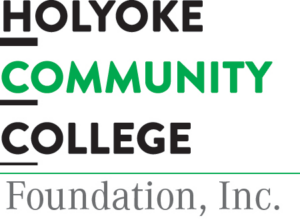
Holyoke Community College Foundation Inc. Board of Directors
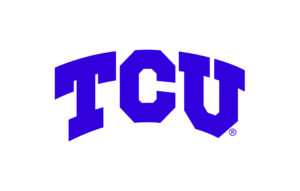
Texas Christian University Board of Trustees
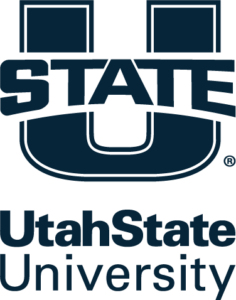
Utah State University Foundation Board
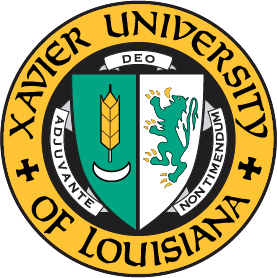
Xavier University of Louisiana Board of Trustees
How we celebrate and recognize them: We were fortunate that we could celebrate our institutionally related foundation board award recipients at the recent Foundation Leadership Forum last month. We will celebrate our institutional recipients at the upcoming National Conference on Trusteeship (April 2–4) in San Diego, California.
- Additionally, we will showcase their achievements in an upcoming Trusteeship magazine article, and individually at their own board meetings.
A special thanks to TIAA: The Nason Award could not happen without support and enthusiasm from TIAA, AGB’s Mission Partner and sponsor of the Nason Award. TIAA’s dedication to effective board governance has a valuable and lasting impact on higher education.
Who was John W. Nason? John W. Nason (1905–2001) was a higher education leader who served as a pioneer on behalf of the importance of effective good governance. In World War II, Nason served as chairman of the National Japanese American Student Relocation Council. He successfully negotiated the release of interned Japanese American students and persuaded higher education institutions to allow them to continue their studies.
Go Deeper:
- To learn more about the 2023 recipients’ accomplishments, read the AGB press release.
- To learn more about the Nason Award, review the web page dedicated to current and past recipients at AGB.org/Award.
- To read about last year’s recipients, read the Trusteeship magazine article.
Looking ahead: Applications for the 2024 Nason Award will be available this summer, so keep an eye out for the opportunity to showcase your board’s accomplishments!
In the new year, I want to take a few minutes to talk about the importance of maximizing stakeholder input while protecting board autonomy.
Governing boards have a responsibility to ensure that campus stakeholders are heard and understood, and it is incumbent on board members to think independently and act collectively in service to the institution’s mission.
Why it matters: To make informed decisions and effective strategies, governing boards and their members need opportunities to listen to, engage with, and learn from the myriad higher education stakeholder groups, without feeling as though they are beholden to any constituency. Board members also need to adhere to board conflict-of-interest policies to ensure they provide impartial and meaningful oversight.
- An effective board serves as a bridge and a buffer—a bridge between the institution and communities it serves, and a buffer from undue external influence and conflicts of interest.
- Institutional accreditors take board and institutional autonomy seriously. Consider how accreditation standards could affect your board’s actions and policies.
Types of stakeholder groups: Important constituencies include (but are not limited to) students, alumni, donors, business leaders, politicians, community members, and the public.
- Each of these groups has specific desires for the future of the institution, but no other group has fiduciary responsibilities like those of the governing board.
Consider These Recommendations:
Build in time to hear from stakeholder groups. Whether students, alumni, donors, or others, each group will desire time to speak with the board. Decide when, where, and how your board will engage with these groups.
- While many, if not all, governing boards require time during board meetings to hear from constituents (for many publics, it is mandated by law), both public and private boards should consider other opportunities to hear from these stakeholder groups in a systematic fashion.
- These opportunities should seek to feel meaningful and substantive to all participants. Otherwise, they can sap the trust a board must maintain with stakeholders.
Speak with one voice. Boards can play an important role as ambassadors and advocates for their institution, and all communications and advocacy work with external stakeholders should be coordinated with institutional leaders.
- If a governing board or chief executive invites a single board member to meet with lawmakers, faculty, or others, the board member should avoid making individual promises to key constituencies without board approval and remember that the board should present a united perspective on institutional matters.
Seek to uphold the strategic priorities and values of the institution. Regardless of the method whereby board members are selected, the process should be based on a clear-thinking analysis of the expertise, experience, and other attributes that the board needs to fulfill its mission and achieve the institutional strategic priorities.
Read, maintain, and update conflict-of-interest policies. To assist board members in demonstrating their impeccable integrity and commitment to the future of the institution, they can maintain updated conflict-of-interest policies.
- Failure to follow such standards can invite scrutiny, legal trouble, and reputational damage, not only to the individual but to the board and institution.
- These policies, valuable for boards, chief executives, and other senior leaders, require regular review by leaders and legal professionals.
Looking ahead: AGB and its board of directors are in the early stages of updating the AGB Statement on External Influences on Universities and Colleges, last revised in 2012. The new version will take into account over 10 years of new developments in public, private, and institutionally related foundation board governance. Governing boards will be able to take advantage of practical insights provided in the new version.
Go Deeper:
To learn more about the board’s role in addressing external influences, review:
- the AGB Statement on External Influences on Universities and Colleges
- the FAQs on External Influences
To learn more about the board’s responsibilities for conflict of interest, review:
- the AGB Board of Directors’ Statement on Conflict of Interest and Guidelines on Compelling Benefit
- Updating Board Bylaws (Article VIII: Conflict of Interest)
Questions for board and committee chairs:
- How will your board or committee ensure that conversations include diverse perspectives, including those of the faculty?
- Does the composition of your board and/or committees reflect diverse backgrounds, experiences, and expertise that enable them to oversee the development and execution of meaningful strategies?
- How can your board avoid even the appearance of undue external influence?
Questions for board members:
- Do you have any personal or professional relationships or biases that could interfere with your ability to make decisions in the best interests of the institution?
- Are you familiar with your board’s conflict-of-interest policy and disclosure process?
- Do you annually complete a conflict-of-interest and disclosure statement?
Questions for chief executives and senior staff:
- How do board education materials explore questions related to external influences?
- How might you create opportunities for the board to hear perspectives that are currently missing in discussions?
As always, thank you for your time, wisdom, and dedication to higher education.




